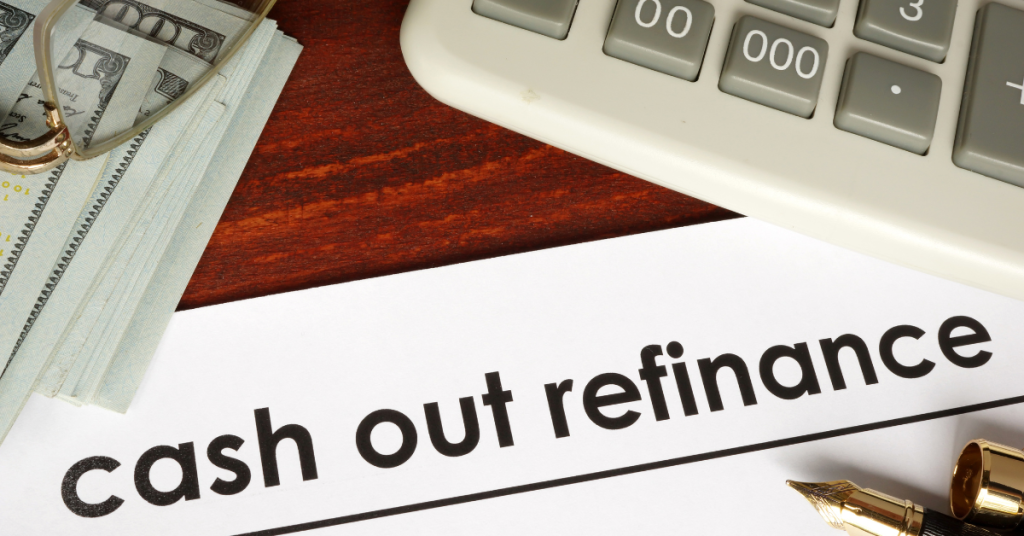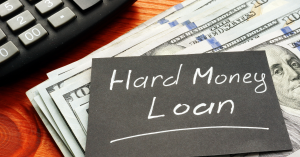Homeownership typically paints a picture of a dreamy, brick-and-mortar house. But across the globe, more individuals are turning to an alternative form of living — manufactured homes or modular homes. While these homes have many benefits, they also bring unique financial implications, especially regarding cash-out refinances.
A term often tangled in complex jargon and diverse interpretations, ‘cash-out refinance manufactured home’ might seem daunting to many. But is it a smart financial move? Could this be a game-changer in managing your mortgage? Or is it yet another trend that’s momentarily shaking the market? Based on my knowledge of refinancing, let’s embark on this enlightening ride as we unravel the mysteries surrounding home loan refinancing — inspiring you to reimagine your financial journey.
What is Cash Out Refinance Loan Option?
A cash out refinance takes the concept of refinancing a step further. This type of refinancing allows homeowners to tap into their home’s equity by acquiring a loan that exceeds their current debt. The difference is then disbursed as cash, which can be utilized for other debts, renovations, or investments.
Cash out refinancing for mobile homes or manufactured homes operates on the same principles as any other refinancing effort. It involves securing a fresh mortgage that exceeds the current amount owed on your home loan.
Reasons to Consider Refinancing a Mobile Home
The terms manufactured and mobile home refinancing are used interchangeably. However, technically, the latter refers to a home built before June 1976. Regarding mobile or manufactured home refinancing, several potential benefits might make it an attractive option.
- Access Equity: Unlike other funding options, one of the key advantages of cash-out refinancing is instant access to home equity. This implies that you can tap into the value built up in your home over time and use these funds as needed.
- Better Interest Rate: Refinancing allows you to secure a better interest rate on your mortgage. A lower rate could significantly reduce your monthly mortgage payments, making managing your ongoing finances easier.
- Funding Big-Ticket Expenses: With the cash obtained from refinancing, you gain considerable leeway in managing significant expenses like mortgage insurance. Extra liquidity, whether a home improvement project or a dream vacation, can be crucial.
- Covering Medical Bills: Unforeseen medical expenses can arise at any time. Having funds readily available because of cash-out refinancing can help ease the financial stress associated with these unexpected costs.
- Paying Off Tuition: Paying for higher education is not a small undertaking. The opportunity to utilize some of the equity in your home towards offsetting tuition costs could be quite beneficial, especially if it means avoiding student loan debt with higher interest rates.
Other borrowers may opt for DSCR cash out refinance to access extra funds for their diverse needs. Remember, while the possibilities might sound enticing, approach with caution. Always ensure the move aligns with your financial situation and long-term goals.
Types of Refinance for Your Manufactured Home
Refinancing your manufactured home can be a strategic move to improve your financial situation. However, it’s crucial to understand the different types of refinances available to make an informed decision.
- Limited Cash-Out Refinances: Limited cash-out refinances allow homeowners to refinance their existing mortgage while borrowing against their equity, but only up to a specific limit. This refinance is typically used to cover the costs of the refinancing process itself.
- Cash-Out Refinances: Cash-out refinances enable homeowners to borrow more than they owe on their current mortgage. The difference is then given as cash which can be used at the homeowner’s discretion, such as for home improvements or paying off other debts.
- Streamline Refinances: Streamline refinances are designed to lower your loan’s interest rate and simplify the refinancing process with minimal paperwork. Government-backed programs like FHA and VA loans often offer these.
Each type of refinance has its benefits and drawbacks. It’s essential to consider how much it costs to refinance your home mortgage, your financial situation, and your long-term goals.
Available Loan Programs for Your Manufactured Home Refinance

There is no one-size-fits-all solution when refinancing your mobile or manufactured option. However, you must carefully consider which option suits your financial goals, current situation, and lifestyle. Here’s a closer look at some of the most common manufactured home loan refinance alternatives:
- Conventional Loans: This option replaces your existing mortgage with a new one that offers better terms or interest rates. To qualify, you may need to meet specific criteria, such as having a good credit score, a stable source of income, and significant home equity.
- FHA Loans: These government-backed mortgage loans, insured by the Federal Housing Administration, are ideal for homeowners with lower credit scores or who don’t have sufficient funds for a down payment. Manufactured homeowners with an existing FHA mortgage may qualify for an FHA streamline refinance, a less costly and quicker refinance process.
- VA Loans: If you’re a veteran, an active-duty military member, or a surviving spouse who meets specific criteria, you might be eligible for a faster VA streamline refinance or IRRRL loans backed by the Department of Veterans Affairs.
- USDA Streamline Refinance: This program is specifically designed for homes financed through USDA loans. It allows homeowners to refinance without needing a new credit review, property inspection, or appraisal. The main goal is to reduce interest rates and monthly payments quickly and efficiently.
Notably, weighing the potential benefits against the risks before deciding which route to take is vital. Also, remember that the best time to refinance is when you meet mortgage refinance eligibility criteria and when refinance rates are low.
Mortgage vs. Personal Property Home Loans
A mortgage facilitates the acquisition of real property through long-term financing. When your manufactured home qualifies for mortgage financing, it often means it’s permanently set on a foundation and considered real property.
Alternatively, if your manufactured home is not permanently affixed and retains its mobility feature, it may be treated as personal property. In this case, it would qualify for what is referred to as chattel loans in the home lending world, not characterized as mortgages.
This scenario might also open doors to options like hard money loans or bridge loans. These are short-term loans used by private investors for renovating real estate properties and flipping them for profits. However, refinancing hard money loans may be challenging since they pose a higher risk for lenders.
Here’s a table outlining the significant differences between the two options:
| Mortgage Loans | Personal Property Loans | |
|---|---|---|
| Definition | Long-term financing for real property. | Financing for movable or ‘chattel’ property. |
| Property Type | Manufactured home fixed on a permanent foundation as real estate. | Manufactured home not affixed to land as real estate. |
| Interest Rates | Typically lower due to lesser risk to lenders. | This may be higher due to greater risk to lenders. |
| Tax Benefits | Possible deductions on mortgage interest. | Usually no tax benefits. |
| Eligibility | Strong credit history, steady income, and significant home equity are often required. | Credit requirements may be more lenient, but rates could be higher. |
Remember, while traditional loans might appear more beneficial due to lower rates and tax deductions, assessing your situation is critical to pick the best option.
Refinance Requirements for Manufactured Homes

Specific standards must be met before successfully refinancing a mobile home loan or a manufactured home. Although processes and standards might differ slightly across lenders, some fundamental aspects remain constant.
Time Factor
Establishing a solid payment track record becomes essential when seeking refinancing alternatives. Before considering your loan application, most lenders will assess at least 12 months of ownership of the manufactured home and land.
Permanent Foundation
A paramount requirement for refinancing includes placing your manufactured home on a permanent foundation. This installation enhances the home’s stability, which makes it easier to refinance and positively influences its long-term value, thus making it a more secure investment for lenders.
Assessing LTV, CLTV, and HCLTV Ratios
Loan-to-value (LTV), combined loan-to-value (CLTV), and home equity combined loan-to-value (HCLTV) ratios play pivotal roles in eligibility determination. Lenders use these ratios to gauge risks. They represent the ratio of your loan amount to your home’s value. While different loan types may demand differing thresholds, having lower ratios generally make you a more appealing candidate.
Credit Score
Your credit score provides a snapshot of your financial reliability. To improve the outlook of your cash-out refinance transactions, you need a credit score that will help you secure favorable interest rates. Some lenders require a baseline credit score of 620, yet certain cases might necessitate scores of 640 or 660 for eligibility.
When to Consider Refinancing a Manufactured Home

Abrupt decisions rarely lead to financial prosperity; thoughtful deliberation is key when considering home refinancing options. Your current financial status, short-term and long-term goals are decisive in successful financial planning.
In addition, market dynamics often impact mobile property refinance alternatives significantly. Make your move when rates are lower than your current mortgage rate or when market conditions favor borrowers.
Potential Manufactured Refinance Home Challenges
Entering into a refinancing agreement for your manufactured home is not without potential hurdles. However, by understanding the difficulties and planning, you can effectively navigate these challenges. Here are some common issues you might encounter and tips on how to overcome them:
- High Refinance Closing Costs: The costs associated with closing a refinance deal can seem overwhelming and may cause hesitation. However, over the long term, they can be dwarfed by the benefits of lower interest rates or better loan terms. Do proper financial planning and savings to cover these costs.
- Legal Complications: It’s common for legal issues to arise in real estate transactions. You might need to convert your home’s title from personal property to real estate, which can be complex. In such scenarios, hire a real estate lawyer who understands the unique aspects of manufactured homes.
- Increased Taxes After Title Conversion: Converting your title might increase your real estate tax liability compared to what you would have paid for property taxes as personal property. Check local laws concerning taxation after title conversion and prepare a financial buffer if necessary.
- Setting a Permanent Foundation Can Be Costly: A permanent foundation is typically required for refinancing, but setting one up can involve costs. However, this investment often pays off by improving your home’s stability, enhancing its value, and making it more likely to qualify for refinancing.
Craft Your Financial Future With Manufactured Home Refinancing

Remember, every challenge presents an opportunity for learning and growth. By preparing yourself adequately and seeking expert advice, you can turn these obstacles into stepping stones toward a healthier financial future.
A well-executed mobile property refinance can potentially unlock an improved financial landscape for homeowners. However, this isn’t a magic potion guaranteed to eliminate your money woes. Drawing from my wealth of knowledge, focusing on making smart decisions tailored to your unique circumstances crowns the ultimate pursuit of financial health.
Frequently Asked Questions About Cash Out Refinance For Manufactured Homes
Can I cash out and refinance my mobile home?
Yes, you can cash out and refinance your mobile property, giving you access to the equity built up in your property. By doing this, you replace your existing loan with a new, typically larger one, then receive the difference as a cash payment. However, conditions apply, such as meeting specific credit score requirements and having sufficient equity in your home.
Can you refinance a mortgage on a manufactured home?
Indeed, you may be able to refinance a mortgage on a manufactured home. Various alternatives include conventional refinance and government-backed options like FHA or VA loans. The aim is typically to secure lower interest rates, shorter loan terms, change the type of loan, or tap into home equity.
Can you do a VA cash-out refinance on a manufactured home?
Performing a VA cash-out refinance on a manufactured home is possible, granted that you are eligible for VA-backed refinancing. This program is designed for veterans, active service members, and their surviving spouses who meet specific criteria. It allows access to better interest rates and grants the chance to convert home equity into cash during refinancing.






